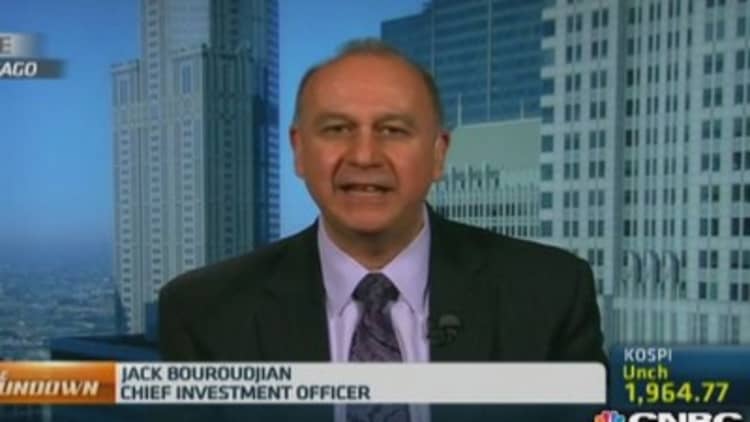Twitter's net loss grew by more than $100 million in the first quarter, though the company's operating earnings and revenue beat Wall Street estimates.
Shares fell 9 percent in after-hours trading.
The company broke even, excluding items, and reported revenue of $250 million.
Analysts had expected the company to report a loss, excluding items, of 3 cents a share on $241 million in revenue, according to a consensus estimate from Thomson Reuters.
The net loss grew to $132.4 million, or 23 cents per share, from $27 million or 21 cents per share a year earlier.
Monthly active users hit 255 million, with mobile MAUs making up 78% of the total.
The revenue and earnings were fine but "the audience metric wasn't as good as you'd hoped for," said Tom Forte of the Telsey Advisory Group in an interview on CNBC's Closing Bell.
For the current quarter Twitter forecast revenue of $270 million to $280 million and adjusted operating earnings of $25 million to $30 million. Analysts on average expected revenue of $272.9 million and adjusted operating earnings of $28.8 million.
This is a breaking news story. Please check back for updates.
(Click here to see what Twitter stock is doing in after hours trading.)

Analysts hold mixed opinions of the stock—11 of 31 of the investment analysts polled by Thomson Reuters rate it a "sell," outnumbering the seven who deem it a "buy."
In contrast, no analysts attach a "sell" rating to Facebook or Google, which are sometimes considered similar high-risk technology stocks.
The social media tool is popular around the world—some credit it with being vital to protest movements such as Arab Spring—but it has also run into obstacles in international markets. Twitter was briefly banned in Turkey by that country's prime minister, Recep Tayyip Erdogan, who wants the company to open an office there and pay Turkish taxes.
The site is also banned in China, where its Chinese-born competitor, Weibo, thrives in one of the world's largest markets. Weibo recently made an initial public offering on the NASDAQ exchange.
That ordinary Chinese citizens are forbidden access to Twitter has not stopped some of the country's leaders from using it to protest a Twitter feed that pokes fun at the Chinese government.
The company did enjoy a recent legal victory at home, though, when a U.S. judge dismissed a case alleging the social media firm committed fraud to fuel interest in its IPO.

